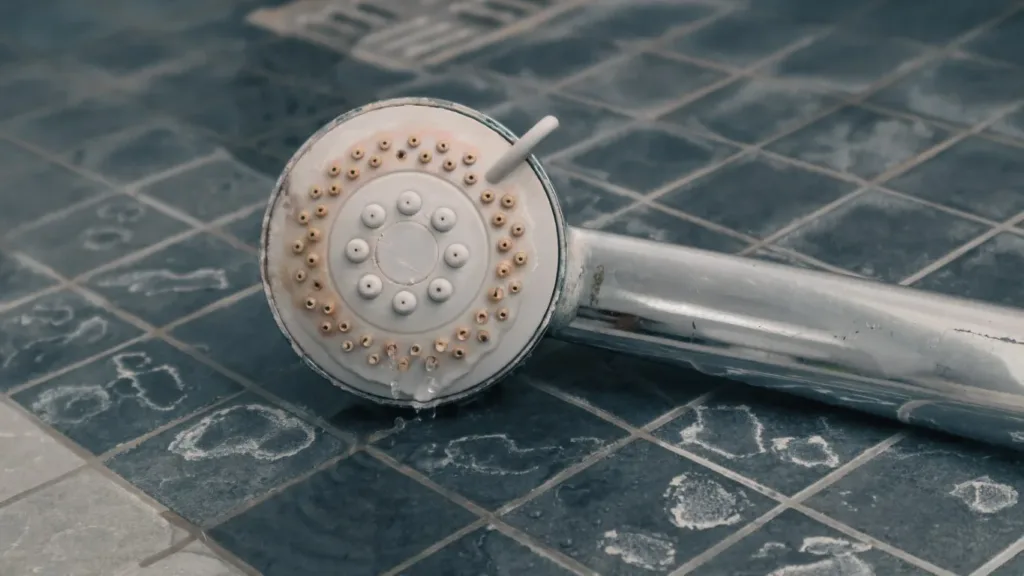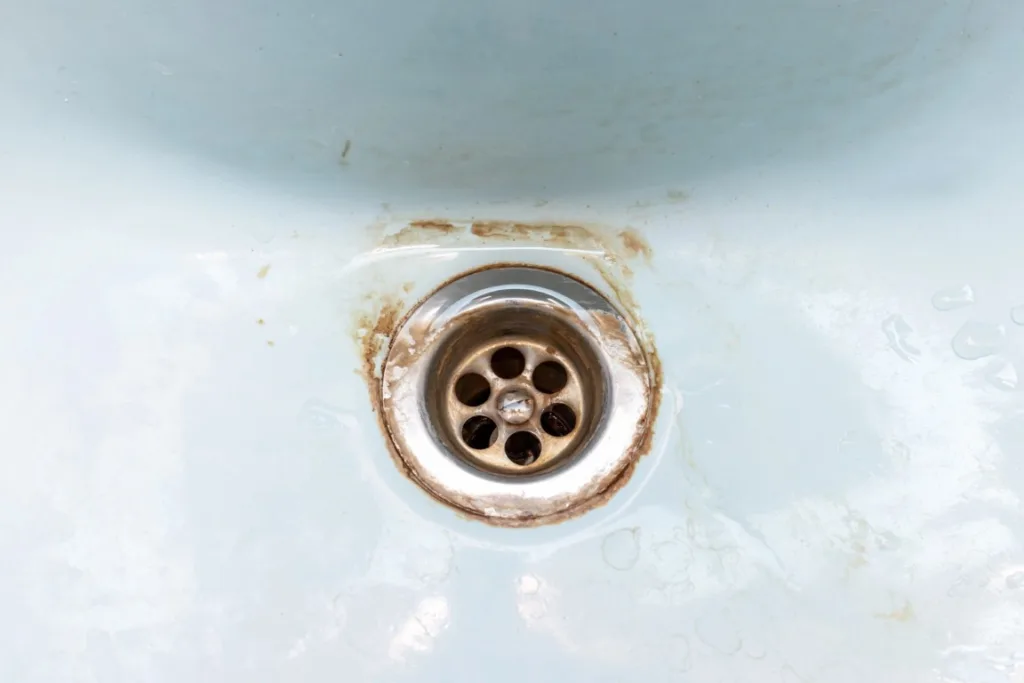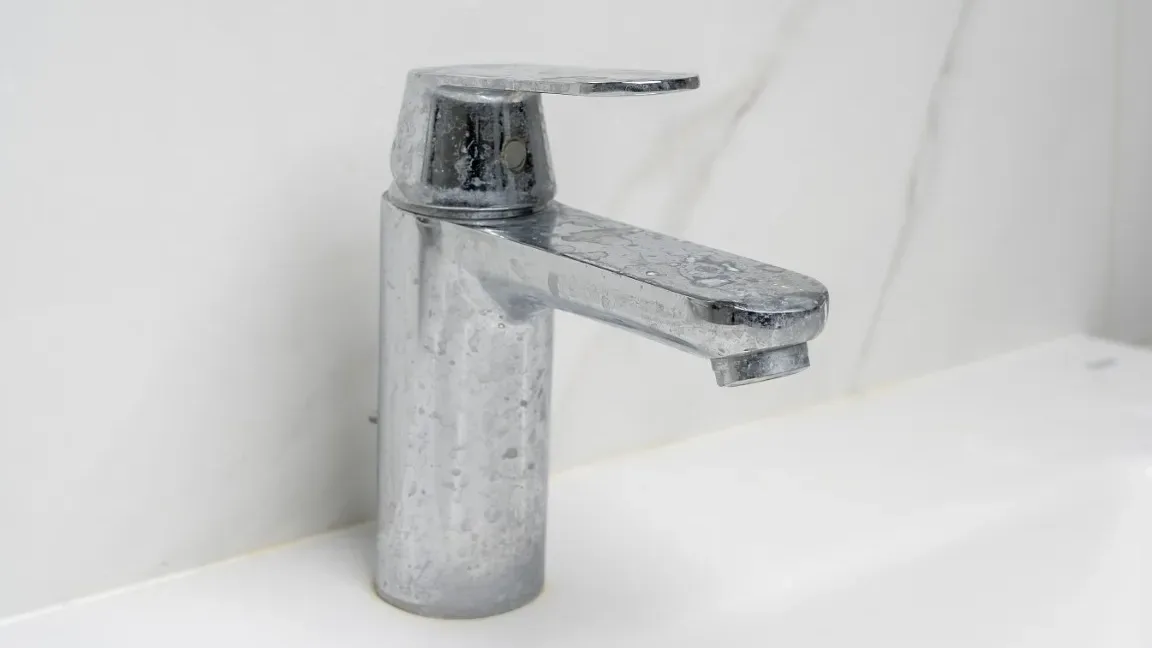
Water plays an essential role in everyday life, but not all water works or feels the same. If you have ever experienced spots on your dishes or stiff laundry, or felt dry skin after showering, your home most likely has hard water. But what exactly is hard water, and why does it matter?
What Is Hard Water?
Hard water contains high levels of minerals, primarily calcium and magnesium. As it flows through rock formations and soil, it naturally picks up these minerals; the more minerals present, the “harder” the water.
How to Tell If You Have Hard Water
Some common signs of hard water include:
Soap Scum & Residue — Magnesium and calcium react with soap to form an insoluble substance that can be found on your bathtub, shower curtain, or sink. Soap scum can also leave a filmy residue on your skin and make it hard to lather soap.
Scale Buildup — Hard water can leave a crusty, white buildup on faucets and showerheads, and around drains, sinks, tiles, and appliances that use water, such as kettles and coffee makers. This buildup can clog faucets and weaken the water pressure.
Stiff & Faded Laundry — If water isn’t treated, hard water deposits can attach to fabrics, causing your laundry to feel rough and look dull after washing. It can also leave stains on your clothes, blankets, and towels and cause fibers to weaken, leading to holes ot tears.
Spots on Dishes & Glassware — Hard water can leave spots on dishes or cause them to look cloudy and streaky. This is referred to as limescale, and it can be difficult to remove.
Dry Skin & Hair — Too many minerals in water can cause dry, brittle hair and itchy, dry, and irritated skin. Hard water can also cause you to develop more blemishes, such as pimples.
Why Should You Care About Hard Water?
While hard water is safe to use and drink, it can cause several inconveniences and lead to long-term damage to your home.

Plumbing Issues — Mineral deposits can clog pipes and reduce water flow over time. It can also cause pipes to corrode, decreasing the lifespan of plumbing fixtures and appliances. In rare cases, you can even experience burst pipes.
Reduced Appliance Efficiency — Water heaters, dishwashers, and washing machines have to work harder, using more energy and shortening their lifespan. They may also break down more easily and need repairs more often.
Higher Costs — Your plumbing system and water heater have to work harder when you have hard water. This leads to increased energy bills and costs from frequent appliance repairs or replacements.
Skin & Hair Problems — When you shower, calcium can build up on your scalp and lead to dandruff. The magnesium and iron in water can also dry out your skin and clog your pores by trapping or stripping away your skin’s natural oils.
How to Fix Hard Water Issues
If hard water is causing problems in your home, consider these solutions:
Water Softener — This system replaces calcium and magnesium with sodium or potassium, effectively softening the water.
Descaling Agents — Soaking faucets, showerheads, and drains in vinegar or specialized cleaners can help dissolve mineral deposits and prevent scale buildup.
Shower Filters — A shower filter is a simple way to reduce mineral content in your shower water and help you have softer hair and better skin.
Rinse Aid — You can add rinse aid to your dishwasher, and it will help prevent spots, streaking, and cloudiness on your dishes. Rinse aid thins out water, preventing it from leaving droplets and residue on dishes and drying dishes faster.
Water Filters — Water filters work to remove excess minerals from your water supply. While they aren’t as effective as a water softener, they can still lessen the effects of hard water. You can choose from a few different water filters:
- Reverse Osmosis — A reverse osmosis water filter is the most effective, and it works by removing excess minerals and other impurities and improving the taste and clarity of water.

- Ion Exchange — This filter replaces calcium and magnesium with sodium or potassium, helping soften your water.
- Carbon Filtration — This system is often used in conjunction with another method to remove additional impurities for cleaner, softer water.
Hard Water Can Affect You and Your Home
Hard water may not be harmful to consume, but it can affect your home, skin, hair, appliances, and water system. Understanding its impact and finding the right solution can save you money, extend the life of your appliances, and improve your overall comfort.

Leave a Reply